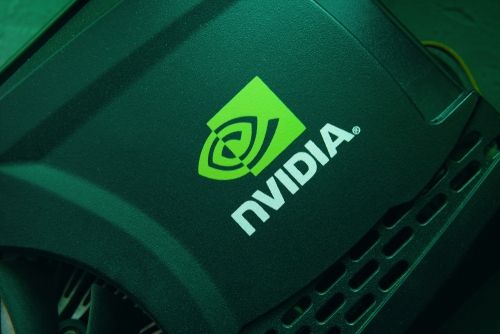3 Tech Stocks You Can Buy and Hold for the Next Decade

The artificial intelligence (AI) boom of early 2023 has supported a remarkable two-year run (so far) for stocks in the technology sector. There are always market downturns along the way, but AI represents a genuine game-changer that society hasn't seen since arguably the introduction of the internet.
Research from consulting firm McKinsey estimates the annual economic impact of AI could exceed $23 trillion by 2040. Today's global GDP is approximately $100 trillion, so the implication is that AI could drive tremendous growth for the world's economy over time. It's not too early to think a decade (or further) out, putting your money on the technology companies most likely to lead the future.
To help in your research, consider taking a closer look at these three top technology stocks and perhaps buying and holding them for a decade or longer.
1. Nvidia
It's probably not a shock that Nvidia (NASDAQ: NVDA) leads this list. It's the de facto leader in AI chips, arguably the most crucial resource for AI. AI requires immense computing power to train and operate large language models like OpenAI's ChatGPT. Smarter AI requires more computing power, positioning Nvidia for growth cycles for the foreseeable future. The company's Hopper architecture built today's models, and Nvidia has begun rolling out its next-generation semiconductor product in Blackwell, which seems poised for tremendous success.
The stock's 820% run since early 2023 may feel impossible to build on, but Nvidia's dominance in such a vast AI market could be unprecedented. Given Blackwell's looming success, analysts estimate Nvidia will grow earnings by an average of 38% annually over the long term. The stock trades at a forward P/E ratio of 45 today, an attractive valuation for a company with such high anticipated earnings growth. Nvidia's continued excellence and seemingly locked-in market leadership justify buying the stock for expected outsized future returns.
2. Amazon
The "cloud" sounds up in the sky, but it's the ground layer for modern technology, including AI, which companies will deploy through cloud computing platforms. Therefore, Amazon (NASDAQ: AMZN) will be a no-brainer for the next decade as the world's leading cloud platform. Investors get far more than a cloud computing business in Amazon, including dominance in U.S. e-commerce, a blossoming advertising business, and a strong Prime membership subscriber base of over 200 million. Research by Goldman Sachs estimates that global cloud revenue could top $2 trillion by the decade's end (partly due to AI).
Amazon, with about 31% of the market, has generated $103 billion from its cloud segment over the past year. In other words, Amazon's cloud platform could multiply in size over the coming decade. If so, that will significantly benefit shareholders since it's the most profitable part of the company. Analysts estimate Amazon's earnings will compound at 22% annually over the long term. Meanwhile, the stock trades at a forward P/E of 44. That's not a bargain, but plenty reasonable given the growth ahead. Amazon stock should thrive over the coming years, so don't hesitate to continue accumulating shares today.
3. Palantir Technologies
Nvidia and Amazon represent AI infrastructure, the high-level technology and hardware needed to make AI possible. Now, it's time to focus on applying AI to the real world, where Palantir Technologies (NASDAQ: PLTR) is starting to establish itself as the market leader. The company's software platforms can build and deploy AI and data analytics for various applications, ranging from military and defense to supply chain management. The company built its reputation with government work over a decade ago but has become arguably the hottest software vendor in the commercial sector since launching its AIP platform for AI applications in April 2023.
Palantir's U.S. commercial customer base has grown from 181 to 321 over the past year, and there are still about 20,000 large companies in the U.S. alone. It's not an exaggeration that Palantir has a nearly endless growth runway because its product is so diverse -- it's usable virtually anywhere there's data. Revenue growth is accelerating, and analysts estimate the company will grow its earnings at a blistering 27% annualized rate over the long term.
Palantir's valuation is the only drawback right now. The stock trades at a whopping 212 times earnings, which is ridiculously expensive, even when you're investing for a decade out. Consider nibbling on shares at first, waiting for an eventual pullback to acquire more reasonably priced shares.







